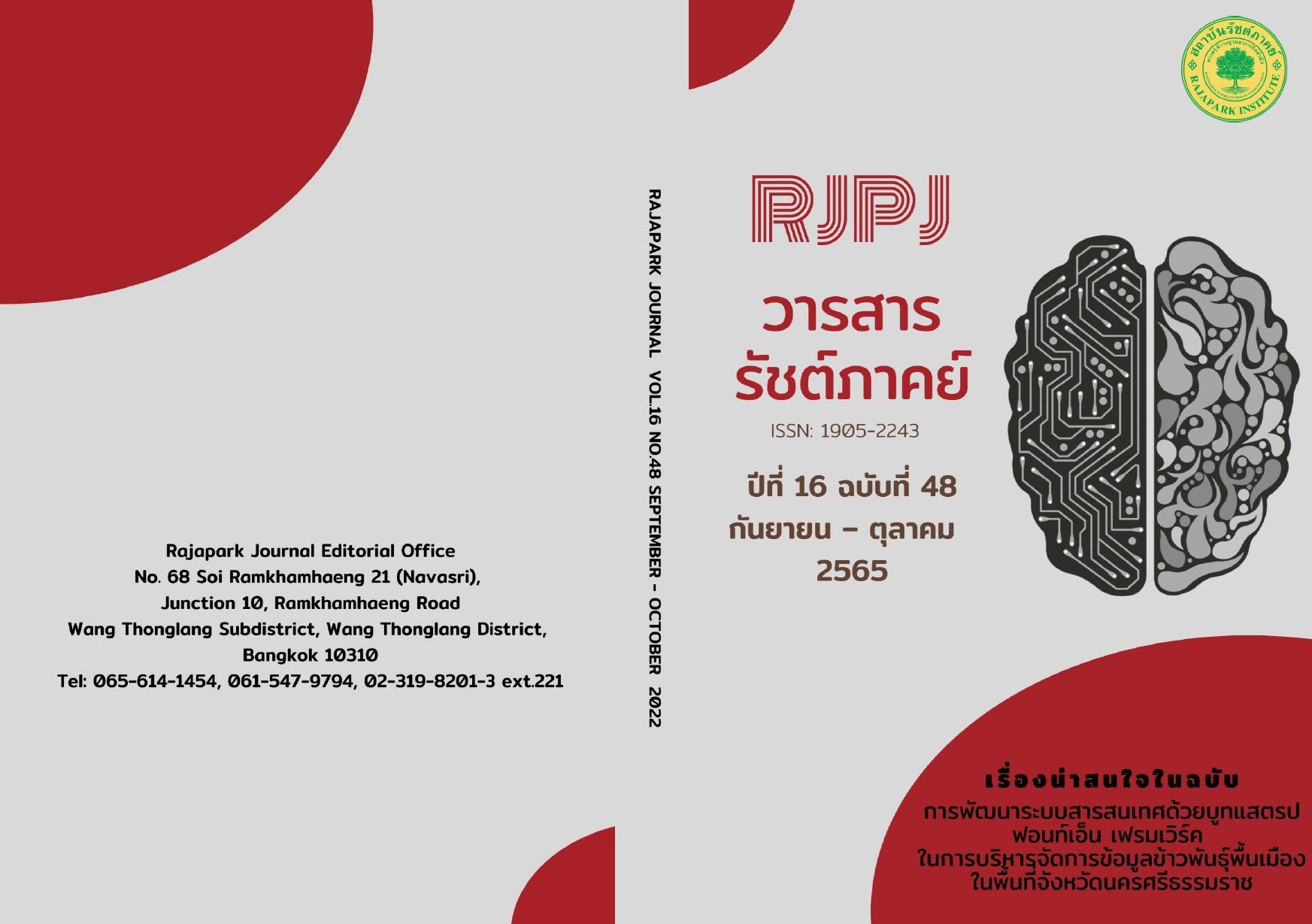Situations, Needs and Guidelines for Developing Leaderships of Educational Administrators Digital Age Under the Nakhon Phanom Primary Educational Service Area Office 1
Main Article Content
Abstract
The purposes of this research were (1) to study the current situations and the desirable situations of developing leaderships of educational administrators age, (2) to study the needs of developing leaderships of educational administrators age, and (3) to develop guidelines for developing leaderships of educational administrators age under The Nakhon Phanom Primary Educational Service Area Office 1. The samples were 358 school administrators and teachers. There were 4 instruments used in this research: (1) the questionnaire in current situations of leaderships of educational administrators age. (2) the questionnaire in leaderships of educational administrators age. (3) a structured-interview form with the Index of Item Congruence. (4) a suitability and possibility assessment form guidelines for developing in leaderships of educational administrators age under The Nakhon Phanom Primary Educational Service Area Office 1. The results were as follows: (1) the overall current situations of leaderships of educational administrators were at the high level, and the overall desirable situations of active learning management were at the highest level, (2) the needs of leaderships of educational administrators, Top 3 skill are digital technology skills, vision skills, and problem solving skills and (3) the guidelines for developing in leaderships of educational administrators, administrators should apply previous knowledge and experience to encourage teachers and personnel to provide innovations to raise learners’ achievements. and the development of work processes in the organization using digital technology.
Article Details

This work is licensed under a Creative Commons Attribution-NonCommercial-NoDerivatives 4.0 International License.
Views and opinions appearing in the Journal it is the responsibility of the author of the article, and does not constitute the view and responsibility of the editorial team.
References
Bunnakonchai, S. (2018). Leadership Quality of Educational Adminstrator in 21st Century of Taweethapisek School under Secondary Educational Service Area Office 1[Master’s Thesis, Krirk University].
Domeny, J.V. (2017). The Relationship Between Digital Leadership and Digital Implementation in Elementary Schools[Doctoral Dissertation, Southwest Baptist University]. https://eric.ed.gov/?id=ED576518
Jiamthong, K. (2018). Skills of School Administrators under Secondary Educational Service Area Office 32 in the 21st Century[Master’s Thesis, Rajabhat Maha Sarakham University].
Kaume-Mwinzi, R.K. (2016). Administrative and Leadership Innovation in the 21st Century a Secondary School Sub-sector Perspective in Kenya. Research in Pedagogy, 6(2), 85‐94. DOI:10.17810/2015.37
Kunthin, P. (2017). Innovative leadership of civil-state school administrators in Chiang Mai Primary Educational Service Area 5[Master’s Thesis, Chiang Mai University].
Nakhon Phanom Primary Educational Service Area Office 1. (2021). Education Management Information System: EMIS. https://data.bopp-obec.info/emis/index_area.php?Area_CODE=4801
Namnu, M. (2018). The Skills of School Administrators in the 21st century under Pathum Thani Primary Educational Service Area Office 2[Master’s Thesis, Rajamangala University of Technology Thanyaburi].
NASSP, National Association of Secondary School Principals. (2014). Breaking Ranks: 10 Skills for Successful School Leaders. NASSP.
Panich, W. (2015). Trends of Educational Institution Administration in the 21st century. Hat Yai University.
Patipan, K. (2012) A Structure Equation Model of Creative Leadership for Vocational College Administrators[Doctoral Dissertation, Khon Kaen University].
Podolny, A. (2015). 21st Century Skills: Success in Life: 6 C’s plus Leadership. http://wanetusa.org/achieve-your-dream/21st-century-skills/
Runcharoen, T. (2011). Professionalism in Organizing and Administering Education Reform Era (Revised Edition) for Reform, round 2 and External Assessment, round 3 (7th ed.). Khaofang.
Sararattana, W. (2013). Educational Administration. Dhipayawisut.
Sinlarat, P. (2014). The 21st century skills must overcome the trap of the West. Dhurakij Pundit University.
Srisa-ard, B. (2017). Fundamental of Research (10th ed.). Suweeriyasarn.
Tonak, K. (2013) A Factor Analysis of Innovation Leadership for Basic Educational Administrators[Master’s Thesis, Naresuan University].
Weberg, D. (2013). Innovation Leadership Behaviors: Starting the Complexity Journey. Jones & Bartlett Learning. http://samples.jbpub.com/9781284099416/9781284099416 _CH02_Davidson.pdf


